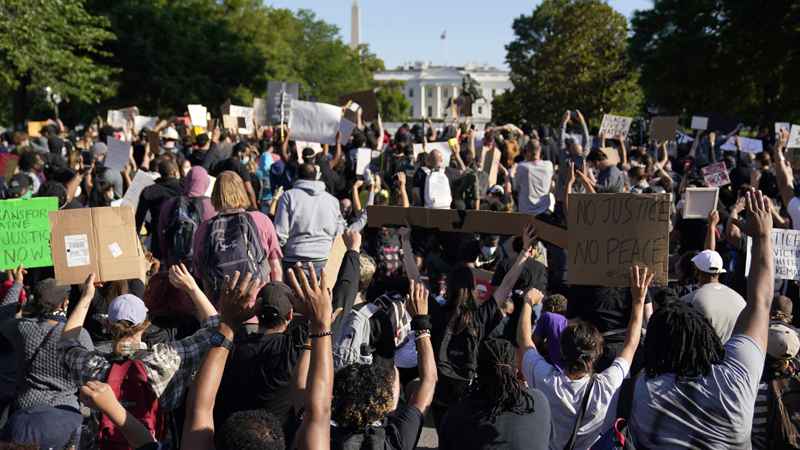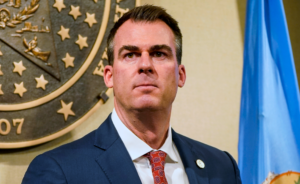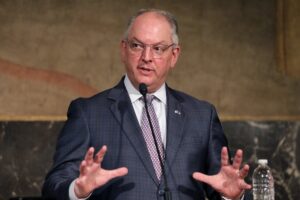Last updated on February 3, 2021
Responses to COVID-19 across the country have exposed weaknesses in all aspects of society.
Crises do that. Crises expose weaknesses. Crises show how the systems we trust and rely upon are so close to fraying.
But arguably the greatest frailty of them all could be seen in the way that our public schools unraveled over the past year. Our kids are suffering in so many unfathomable ways.
As School Choice Week comes to a close, let’s pause for a moment and consider how simply awful the current situation is for parents who have opted to maximize the value of the school taxes they pay and utilize the public service.
Ohio was the first to mandate school closures on March 12 and, within one day, 15 other states mandated school closures. Teachers unions, whose approach to maintaining strength of membership and loyalty long has valued service time over talent and student performance, leaned into the fear-stoking mainstream media and pushed state government for closures well ahead of any available science and data.
In Illinois, where my children attend public school, students in most local districts have been outside of the classroom since mid-March 2020.
Friday was the first day my youngest was allowed to return to class. It was the third time since the school shutdown in March that she’s been present in class. She’s 8.
She’s spent the better part of 10 months trying to learn via Zoom. It’s been miserable for her and for everyone around her. She tells me that she feels like a failure because she can’t stay engaged. She’s been corrected in front of her peers by teachers who are expecting engagement commensurate with in-person learning. She’s embarrassed. Turned off. Says that she doesn’t like school. Again, she’s 8.
She’s been clinically diagnosed as having special needs. Spending hours in front of a computer screen is the worst possible scenario for her and kids like her. But it is the only available option.
The private schools in our area are full. They have been operating on a 5-day in-school schedule since mid-August without incident.
Homeschooling is not a viable option for working parents. So we’re stuck, and our little girl is stuck in the middle of an archaic system that wasn’t great in its original form that is now repackaged into virtual delivery and operated by people who have zero experience teaching via distance learning.
Forget about what the American Academy of Pediatrics had recommended for kids and screen time before the pandemic: “Correlational studies have shown that 8- to 11-year-olds who exceed screen time recommendations scored lower on cognitive assessments, with compliance with recommendations explaining about a fifth of the overall variance in cognitive scores (The Lancet Child & Adolescent Health, Vol. 2, No. 11, 2018). A combination of screen time and too little sleep has also been associated with heightened impulsivity in the same age group (Pediatrics, Vol. 144, No. 3, 2019).”
Meanwhile, private schools have operated normally or with only slight modification and in accordance with local departments of health guidelines – across the country – without incident.
You’re not reading stories about massive outbreaks at private schools because they are not occurring. Teachers and students in these schools are not dying. It’s a fact that has gone largely unreported because it doesn’t fit the message of the fear-stoking organized labor unions that rule the public education machine.
Americans deserve better, and choices for how we educate our kids with the tax dollars that we push forward to public education are vital. Not all kids are alike. My kids are no more important than yours. But our kids are all different and need customized solutions. The American public education system has been outdated, operates on an agrarian calendar and contributes significantly to our kids falling behind the world.
No offense, but our ability to educate and our kids’ ability to learn shouldn’t have been ranked behind Poland in science, Lithuania in math, or Portugal in reading before the pandemic. You can only imagine where we will rank next year.
We need more charter schools that actually have to account for outcomes to continue to operate. We need magnet schools that would allow for specialized curriculums. We need more control of how tax dollars are allocated to education for the specific purpose of allowing the free market to improve the educational system, rather than to protect and maintain the draconian approach to educating children via the lone public options we’ve funded for generations.
If this moment isn’t the precise time to consider how we make education better, there won’t be another.
Much of the nation celebrated National School Choice Week last week, as more and more parents frustrated with remote-only learning, unhappy with public school outcomes and simply looking for alternatives are embracing school choice options.
In Arizona, a national leader in school choice options, private and charter schools saw enrollment increase significantly over the past year. In Michigan, roughly 10 percent of the state’s student population attend charter schools. In Ohio, more than 300,000 students take advantage of some type of school choice option in the state, and that number could grow thanks to legislation signed into law near the end of 2020. In North Carolina, a new poll shows a majority of residents now support school choice options. And in Kentucky, new legislation was filed that would create Education Opportunity Accounts that could be used in public or private schools across the state.
Elsewhere in America…
NATIONAL
President Joe Biden signed an executive order last week instituting a lease moratorium for oil and natural gas drilling on federal land and water, a move that’s already being challenged in federal court. Some western states with significant federal land acreage like Wyoming rely heavily on tax revenue from oil and gas development. While the order doesn’t apply to existing federal oil and gas leases, Wyoming Gov. Mark Gordon called it “a crushing blow to the economies of many Western States.” In 2019, state and local governments received $1.67 billion from the oil and gas industry.
NEW YORK
For months, journalists, Republican officials and even some Democratic lawmakers have been frustrated with the administration of Gov. Andrew Cuomo over what they saw as a failure to release accurate numbers for COVID-19 deaths in state-monitored nursing homes. Some observers speculated that the apparent reticence stemmed from the decision early in the pandemic to send infected residents back into their facilities, clearing hospital beds. Now, an independent report from Attorney General Letitia James makes clear that the number of deaths was, in fact, underreported, by as much as 50%.
PENNSYLVANIA
As he has every year through his two terms in office, Pennsylvania Gov. Tom Wolf is again pushing for a severance tax on natural gas to pay for his administration’s priorities. Much like in past years, this renewed push is seen as likely to fail in the face of a Republican-controlled Legislature that fears such a tax, on top of the impact fee that the drilling industry already pays, would drive away an industry that has provided billions of dollars in state and local revenue over the years. The Wolf administration is adamant that the industry can bear the additional tax, and that failing to impose one amounts to a missed opportunity.
NEW JERSEY
A bill in the New Jersey Assembly would require the state to use American-made steel and iron in highway and bridge construction contracts that exceed $1 million. “At a time when so many businesses face unparalleled challenges and uncertain futures, it’s critical that we support American industry and the skilled workers who manufacture high-quality products across our nation,” the bills sponsors wrote. A similar bill has already passed in the New Jersey Senate.
OHIO
The free market Buckeye Institute says state government needs to be more transparent with its spending. In a new policy brief called “Beware the Shadow Budget: Ohio Spends More than Many Think,” the institute points out that Ohio’s expenditures will cost taxpayers more than $153 billion, more than double the $69 billion that tends to be called Ohio’s budget. “Suggesting that ‘Ohio’s budget’ was a mere $69 billion is grossly misleading and makes it difficult for voters and taxpayers to accurately assess the size, scope and cost of their government,” the institute’s Greg Lawson wrote. “And keeping taxpayers in the dark about government spending undermines accountability for state officials and policymakers.”
INDIANA
Indiana moved a step closer Thursday to protecting businesses, schools and health care entities from liability related to COVID-19. The Indiana House Judiciary Committee voted to advance House Bill 1002, sponsored by Rep. Chris Jeter, R-Fishers, to the full House. The legislation, if passed and signed into law, would provide temporary immunity to companies from lawsuits alleging someone was exposed to, or contracted, COVID-19 at the business or where a service was provided.
KENTUCKY
Kentucky Gov. Andy Beshear sent a letter last week to Republican leaders in the General Assembly asking if they would be willing to forge a compromise on legislation lawmakers have passed that curbs his authority on emergency orders. The Democratic governor has vetoed those bills. However, Republicans, who hold supermajorities in both the House and Senate, need just simple majorities in both to override those vetoes.
ILLINOIS
An state representative says data and science show Gov. J.B. Pritzker’s COVID-19 mitigation, which was among the strictest in the nation, may have made the death rate worse in Illinois compared to neighboring states that had fewer economic restrictions. Illinois state Rep. Tony McCombie said based on numbers she’s reviewed, the more strict restrictions in Illinois haven’t helped to reduce the state’s COVID-19 death rate when compared to neighboring states.
Illinois’ municipalities are, again, on the watch for a potential reduction of their promised share of state revenue if lawmakers choose to use a tool they’ve utilized multiple times before to help shore up the state budget. The state collects income tax and other types of revenue for municipalities and distributes it via the Local Government Distributive Fund. Until 2011, local governments received 10% of the personal and corporate income tax revenue but that was slashed to 5.45% for personal income taxes and 6.16% of corporate income tax collections to help the state fill a budget hole from the 2008-2009 recession. Both of the last two income tax increases saw proportional reductions in the LGDF. “We’re always concerned about LGDF as the local share of state income taxes,” Illinois Municipal League President Brad Cole said. “There are only so many places where the General Assembly and the governor can go to make reductions and we’ve seen that LGDF is one that comes out, usually, at the front of the line as a place where they can make cuts.”
FLORIDA
Gov. Ron DeSantis unveiled his fiscal year 2022 state budget proposal Thursday. The spending plan called for $96.6 billion in state spending, a $4.3 billion increase over fiscal year 2021’s state budget. DeSantis said expenditures related to the COVID-19 pandemic account for $2.6 billion of the proposed spending increase. The governor’s plan proposed $33.8 billion for Medicaid, $22.8 billion for K-12 public schools and $9.47 billion for roads and infrastructure.
GEORGIA
The Georgia House approved an Amended Fiscal Year (AFY) budget Thursday for fiscal year 2021 that increased spending by $654 million, bringing the fiscal year state budget to $26.5 billion. Two budgets are passed through the General Assembly every legislative session. Lawmakers must review and approve spending for the remainder of the current fiscal year, also known as the AFY budget, and approve the budget for the next fiscal year, which begins on July 1. The proposed AFY budget is now in the Senate.
NORTH CAROLINA
The North Carolina Division of Employment Security overpaid more than $69 million in unemployment benefits in 2020, including $45 million in Federal Pandemic Unemployment Compensation overpayments. The NCDES has paid $9.6 billion in unemployment benefits from nine state and federal benefit programs, agency reports show. The agency has recouped some of the money by offsetting benefit payments and offering repayment plans.
VIRGINIA
A bill to abolish the death penalty in the commonwealth is working its way through the Virginia Senate. Senate Bill 1165 would eliminate the use of the death penalty in Virginia, including for those who are on death row. Previous attempts to abolish the death penalty have failed.
TENNESSEE
The Tennessee Department of Education has asked Metro Nashville Public Schools to account for nearly $110 million in federal grants. Tennessee Education Commissioner Penny Schwinn identified “significant issues in the use, drawn amounts, and oversight of federal grant funds” and gave the school district 15 days to account for any of the funds already spent. District spokesman Sean Braisted told The Center Square the district has utilized funding in compliance with state and federal law.
SOUTH CAROLINA
The South Carolina Senate passed a bill to outlaw most abortions in the state, and the House is expected to follow suit. Senate Bill 1 would criminalize abortions if a fetal heartbeat is detectable except in cases of a medical emergency, rape, incest or a fetal anomaly. Fetal heartbeats usually are detectable about six weeks after conception, before many women realize they are pregnant.
LOUISIANA
Proposed tax changes for Louisiana’s oil and gas industry are drawing criticism and opposition from within the industry. Louisiana’s severance tax on oil – the amount the state charges on oil extracted in the state – is 12.5 percent. That rate is higher than any other state except Alaska and triple the rate charged for natural gas. Several lawmakers have said they would like to lower the severance tax rate but don’t want to harm state finances by doing so. A legislative committee discussed a proposal that state government could slash oil severance taxes while bringing in about the same amount of money by eliminating tax breaks and equalizing taxation on oil and natural gas.
TEXAS
Gov. Greg Abbott last week signed an executive order seeking to protect the state’s energy industry from what he said was federal government overreach. Responding to President Biden’s plan to halt leasing of federal land to oil and gas development and to prohibit issuing new permits, Abbott’s order directs every state agency to use “all lawful powers and tools to challenge any federal action that threatens the continued strength, vitality, and independence of the energy industry,” according to a statement from the governor’s office. Under the order, agencies are directed to identify potential litigation, notice-and-comment opportunities, and any other means to prevent federal overreach within the law.
CALIFORNIA
Churches and other houses of worship in California are fed up with Gov. Gavin Newsom’s restrictions limiting how residents can congregate to pray. The Thomas More Society, a nonprofit public interest law firm that fights for life, families and religious liberty, has filed a number of lawsuits claiming Newsom’s restrictions are discriminatory against faith-based organizations, who for months during the pandemic were not able to hold indoor worship services while liquor stores, retail outlets and other businesses and groups could provide indoor service.
Newsom also is facing a significant recall challenge that some prominent Democrats support, and a Democratic tech billionaire announced he is running against the incumbent governor.
WASHINGTON
As guns fly off store shelves around the U.S., Washington state lawmakers are setting their sights on banning high-capacity magazines following a year of surging gun-related crime. A bill introduced in the state would ban high-capacity magazines capable of carrying more than 10 rounds of ammunition and includes fines up to $5,000 for violators. A gun store owner told state lawmakers during a hearing that stricter gun laws would push gun owners out of Washington at the expense of local businesses like her own.
OREGON
Oregonians can hit the gym again and take in a movie, but if they go out to eat, they will have to do it outside. Gov. Kate Brown issued an order last week allowing “Extreme Risk” counties to open gyms, fitness centers, theaters, museums and other indoor entertainment venues to a maximum of six people for every 500 square feet. Meanwhile, bars and restaurants in the same tier are still restricted to outdoor dining only as they have been since last fall.
COLORADO
Colorado’s congressional delegation is busy lobbying the new Biden administration to keep U.S. Space Command headquarters in Colorado Springs and the U.S. Bureau of Land Management headquarters in Grand Junction. Space Command was slated to be relocated to Huntsville, Alabama, in the last days of the Trump administration, drawing accusations of political favoritism. Colorado’s delegation wants that decision paused and investigated.
ARIZONA
Members of Arizona’s GOP are asking newly reelected chairwoman Dr. Kelli Ward for a recount of their Jan. 23 elections. Ward’s opponent has formally requested a recount of votes from the annual GOP State Meeting held Jan. 23 in Mesa. Ward and others in the Arizona Republican Party have been among the nation’s most vocal in calling for audits of Maricopa County’s presidential election results.
MICHIGAN
The Great Lakes State continues to buckle under the strain of state-mandated restrictions on businesses and high-school sports. After instituting a “pause” in the aforementioned categories one week before Thanksgiving 2020, the governor and the Michigan Department of Health and Human Services extended those pauses three times. Although restaurants will be allowed to open again on Feb. 1, they’ll be restricted to 25% capacity with a 100-person limit. High school winter sports are paused until at least Feb. 21, which prompted the Michigan House of Representatives Oversight Committee to conduct hearings on Jan. 28. Testimony noted professional and collegiate sports weren’t restricted.
This article was originally published on The Sunday Read: Public schools’ response to pandemic is proof parents need more options






Be First to Comment